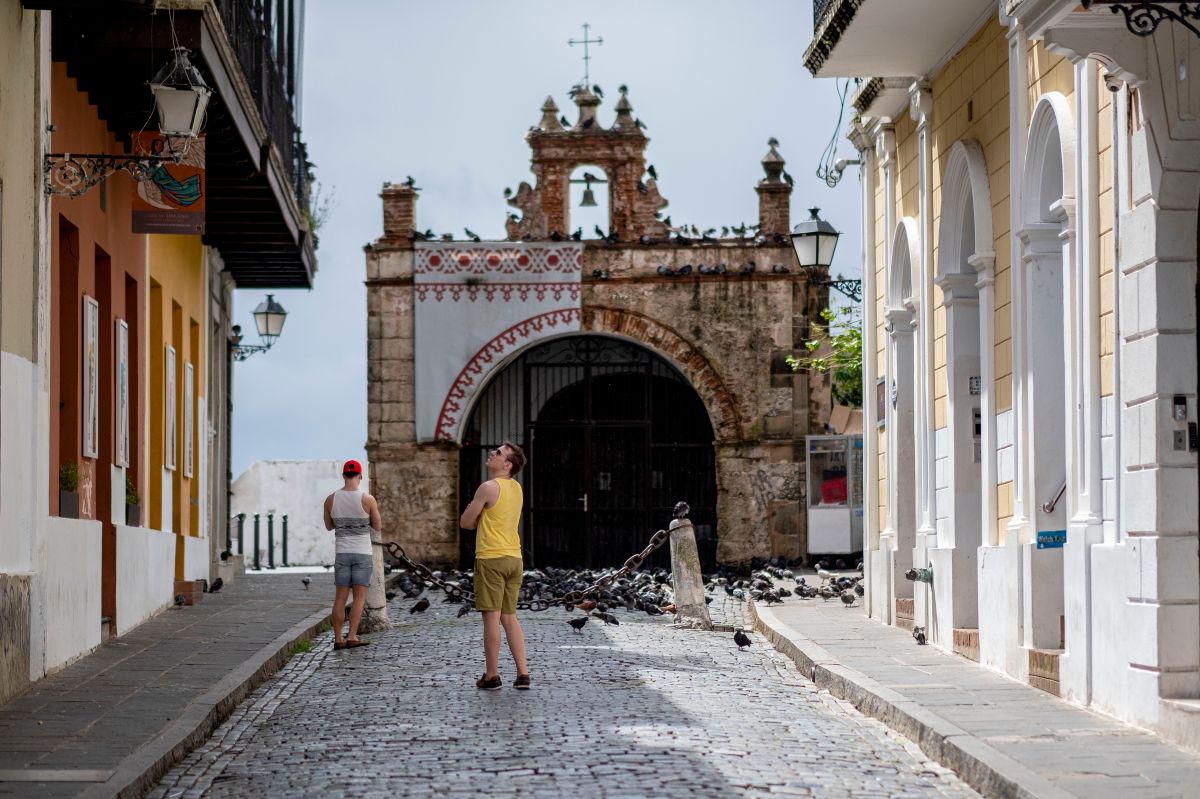New York – A coalition led by the Center for the Action of Popular Democracy (CPDA) announced this Tuesday that it will exert pressure on the United States Congress so that the tax exemption decrees granted under Law 22 to alleged investors, mostly Americans, to establish themselves on the island in exchange for creating jobs and contributing to economic development.
Law 22 or Law to Encourage the Relocation of Individual Investors to Puerto Rico, contained in the Incentives Code (Law 60-2019), exempts individuals who have not been residents of Puerto Rico for the last few years from paying taxes on passive income. 10 years before the approval of the law. Beneficiaries must establish residence on the island.
The purpose of the incentive approved by the Puerto Rico Legislature and in force since 2012 is to promote investment on the island, employment, and therefore, boost the economy.
The problem is that many of these alleged investors, some well-known bitcoin magnates such as Brock Pierce, are not strictly complying with the requirements of the law in various aspects, which has led from 2021 to the present to the revocation of hundreds of decrees. by the Department of Economic Development of Puerto Rico (DDEC), the agency in charge of supervising them. Before, this process was practically not carried out. The reasons for non-compliance with the inspection are not clear.
Given the public pressure that the issue generated in Puerto Rico and among diaspora organizations, last summer, the agency reported that it had annulled 311 decrees of Law 22 for non-compliance with the filing of annual reports.
Additionally, it was notified that the DDEC was working with the Annual Report established by law to measure the return on investment based on what its recipients pay taxes and contribute to the treasury.
Precisely, another problem related to the law is that, in some cases, these investors are failing to comply with the procedures before the Internal Revenue Service (IRS). In December 2019, this office carried out an analysis on this group that concluded that hundreds of Americans who have moved to Puerto Rico due to Law 22 stopped paying millions of dollars to the federal treasury. In 2021, the IRS began an audit of beneficiaries of said law to verify whether or not they are complying with the statute.
At the end of 2020, it emerged that Congress, through the Committee on Appropriations of the House of Representatives, had requested information from the authorities on the island about both Law 22 and Law 20, which grants tax exemptions to corporations that export services. The intent was to establish how IRS collections had been reduced as a result of the enforcement of the laws.
The “Not Your Tax Haven” campaign, which was joined by 10 organizations in the United States, several from the Puerto Rican diaspora, seeks to ensure that compliance with the law is monitored from Washington DC.
Iris Figueroa, senior policy strategist at CPDA, stressed that the effect of this law is to displace Puerto Ricans with less purchasing power who cannot buy homes due to the high cost that foreigners are willing to pay.
“A decade after its creation, it is clear that Law 22 is a bad proposal for communities both in Puerto Rico and in the United States: individuals who do not want to contribute to their own communities of origin move to Puerto Rico to avoid paying taxes, while Puerto Ricans face rising costs of living as wages stagnate, neighborhoods gentrify, and the environment is left unprotected,” Figueroa said. “Law 22 has increased local housing costs, by while granting favorable treatment to wealthy foreigners,” he added.
New York Democratic Rep. Nydia Velázquez joined efforts to investigate the impact of the law.
“When Law 22 was approved, proponents affirmed that the law would boost investment in Puerto Rico and bring incalculable benefits to the island’s economy. Unfortunately, Law 22 has only deepened marginalization, displacement, and socioeconomic inequality and has helped turn the island into a tax haven for the rich,” the congresswoman stated.
“Any benefits that could have been gained from this law have been marred by poor oversight and, ultimately, a lack of political will to put Puerto Ricans first. The local and federal governments have a great responsibility to provide Puerto Ricans and members of Congress with tangible results from their audit efforts on Law 22. More importantly, it is time to have a serious analysis on the detrimental effects of the law for the US territory and taxpayers and question their ability to promote economic development,” he said.
At the moment, the coalition is made up of The Puerto Rican Alliance, Mi Patria, Diaspora en Resistencia, Abolish Act 60, CASA, Make the Road Family, Churches United for Fair Housing, NY Communities for Change, Action NC, and Florida Rising.
Apart from these groups, others inside and outside the island such as “El otro Puerto Rico”, “Losing Puerto Rico” and “Puerto Rico Not For Sale” have started their campaigns in recent months against the impact of the law in the territory.
It should be noted that the Puerto Rico Legislature is in charge of amending or repealing laws such as those mentioned. Although there are proposals for amendments in both the House and the Senate, at the moment none of the legislative initiatives have advanced in the Capitol.
Keep reading:
Youtuber and American boxer Jake Paul buys a house in Dorado, Puerto Rico, for $15 million
Secretary of State of Puerto Rico: “The Board has the last word” on debt restructuring on the island
Statesmen ask Congress to address the issue of status as retribution for the sacrifice of thousands of Puerto Rican veterans in the US Army.
